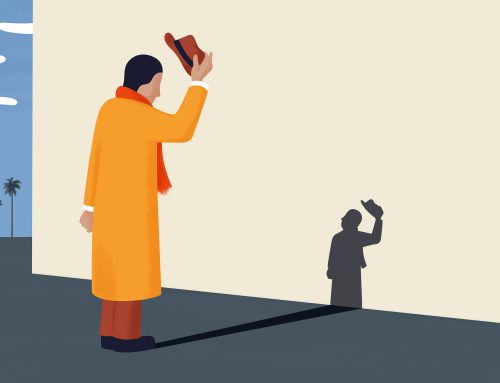Ferguson and the Importance of Humble Listening
December 18, 2014
Recently when traveling to Chicago, IL, I visited Willow Creek Community Church. At the beginning of the service, pastor Bill Hybels addressed the conflict in our nation about the grand jury decision in Ferguson.
Hybels shared something I think is very important, and I would like to share it with you: One of the biggest challenges in peacemaking efforts is that the individuals and groups on each side of the conflict have distinct narratives or stories around a particular issue or event. These stories are true because they reflect the individual’s or group’s experience. But often the stories are different, sometimes very different, and so it is difficult to understand and empathize with those on the other side of the conflict.
Here is one example of what I’m talking about that relates to the current conflict about Ferguson: My experience of the police and law enforcement as a White, middle-class male who grew up in a suburb of Chicago is different from the experiences of the police and law enforcement of some of my friends and colleagues who identify as people of color. My experience of law enforcement has been fair. When I have gotten pulled over or issued a citation, it is because I have done something wrong. In uncertain situations, I tend to get the benefit of the doubt. This is my story. And my story is true for me because it accurately reflects my experience.
But some of my friends and colleagues who identify as people of color have a different story. Their stories include being treated unfairly, questioned, followed, and suspected of wrongdoing when none existed. In uncertain situations, they tend not to get the benefit of the doubt. This is their story. And their story is true for them because it accurately reflects their experience.
The natural tendency is to view our own stories as universal. If it is true for me, I assume it must be true for others.
But it’s not.
For peace to have a chance, in Ferguson and in our nation, I think White people need to commit to humbly listen to the stories of people of color. Humble listening involves stopping our natural tendency to assume our own stories are the universal experience of everyone. Humble listening involves hearing and believing the other person’s experience, genuinely seeking to understand. Humble listening involves a willingness to be challenged and changed by the other person’s experience.
Action Step: If you are White, read a blog or watch to a documentary written by a person of color about their experiences with racism. When you do so, make a commitment NOT to discount the person’s experience just because it doesn’t match your story or experience. Instead, humbly listen to the other person’s story. Believe that what the person is saying accurately reflects his or her experience. When you are tempted to comment or give your opinion, don’t do it. Instead, continue to humbly listen. Think about what it would look like for you to be an ally for justice.
Related Thoughts
No Comments
Leave A Comment

Subscribe To My Newsletter
Join my mailing list to receive the latest blog posts.
Receive my e-book “The Mental Health Toolkit” for free when you subscribe.






[…] wrote a blog post recently about the events of Ferguson and the importance of humble listening, especially to the stories of people of […]
[…] Listen first, talk second. To understand the viewpoint of the other person, you have to listen first. Also, actually listen. Don’t just wait for the other person to stop talking so you can jump in and say something. […]